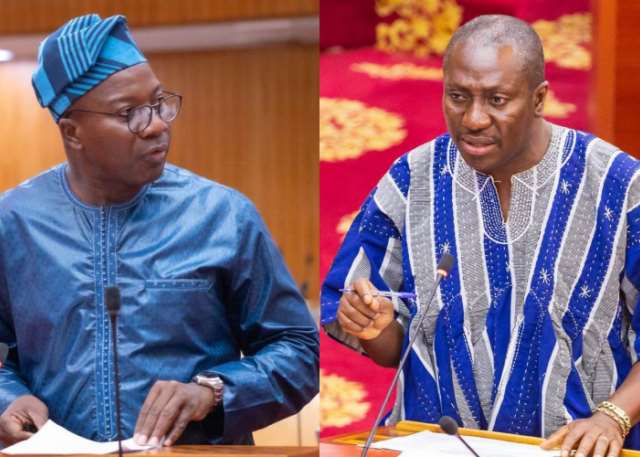Parliament began vetting seven Supreme Court nominees on Monday, June 15, with Minority Leader Alexander Afenyo-Markin warning against rising political influence in the judiciary.
He criticised the Mahama administration for nominating seven justices at once, calling it hypocritical given the NDC’s previous opposition to similar appointments under President Akufo-Addo.
“These nominees are inheriting a court that has retreated into comfortable silence when courage was most needed,” Afenyo-Markin said. “This government, led by the same NDC that opposed appointments under President Akufo-Addo, is now presenting seven nominees at once. Where was their concern about the court’s size back then?”
He urged the committee to prioritise integrity over partisanship. “Supreme Court authority derives from moral standards, not political alignment,” he said. “We must approve only those with an unbending commitment to judicial independence.”
In response, Majority Leader Mahama Ayariga defended the appointments as constitutionally sound. He rejected claims of double standards, saying the NDC’s earlier position was based on election timing, not political gain.
“To say the government is guilty of double standards is misleading. The issue then was timing and principle, not politics,” he said. Ayariga called for a focus on the nominees’ competence, not partisan accusations.
The Nominees
The seven Justices nominated by President John Dramani Mahama under Article 144(2) of the 1992 Constitution are:
Justice Senyo Dzamefe, chair of the 2014 FIFA World Cup Commission of Inquiry
Justice Sir Dennis Dominic Adjei, expert in human rights law
Justice Gbiel Simon Suurbaareh, respected for his service in the Upper West Region
Justice Philip Bright Mensah, noted for electoral and civil appeal jurisprudence
Justice Janapare Adzua Bartels-Kodwo, contributor to appellate law reform
Justice Hafisata Amaleboba, advocate for criminal justice reform
Justice Kweku Tawiah Ackaah-Boafo, known for landmark commercial and constitutional rulings


